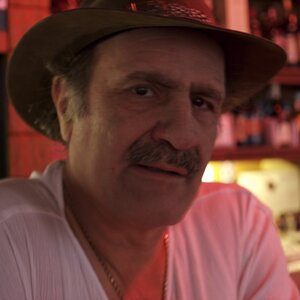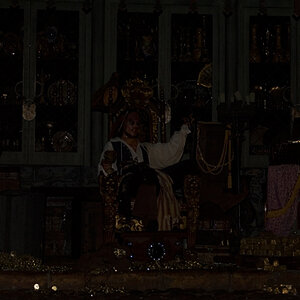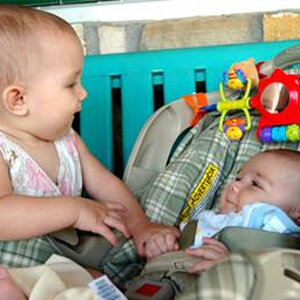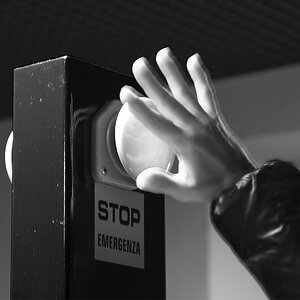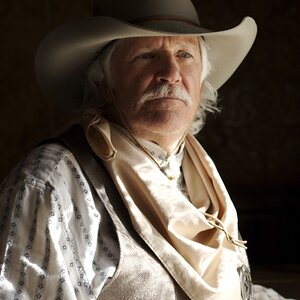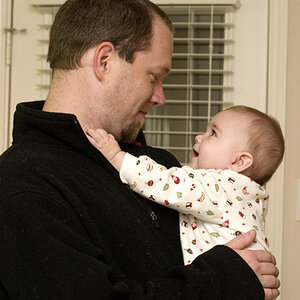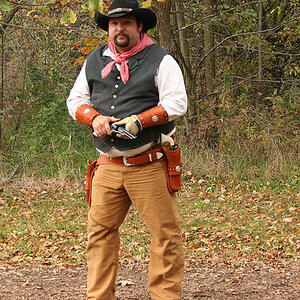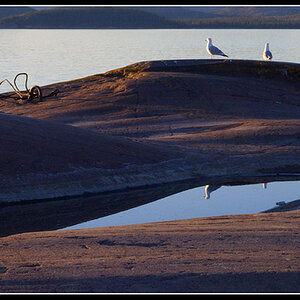Gaerek
No longer a newbie, moving up!
- Joined
- May 2, 2009
- Messages
- 1,341
- Reaction score
- 98
- Location
- Tucson, AZ
- Can others edit my Photos
- Photos NOT OK to edit
I got into photography about 11 years ago when my Dad gave me his circa 1980 Canon AE-1. I had no idea how to use it, but I devoted a lot of time and effort into learning how to use it. A year and a half later, I went to college, couldn't afford the film and processing, and my AE-1 got stuffed in a closet to collect dust.
Fast forward to a few years ago. I decided to get back into photography, but had all but forgotten my AE-1. With a good job, I went out and bought a DSLR and had to relearn everything I had forgotten. I was surprised at how automatic the cameras had gotten. Just a couple months ago, I ran across my AE-1, and I started playing with it. I didn't have any film, but I was amazed at how far photography had come in the past 30 years.
Last week, I decided to go buy some film, and give this old camera a try again. It's actually amazing how refreshing it is to take photos with this old camera. Everything is manual, shutter, aperture, focus, etc. There is a rudimentary shutter priority mode (which I believe they called automatic aperture back then) but beyond that, everything is in the photographer's hands. I realized I had taken autofocus for granted. The first couple of shots I took, I looked at the back of my camera, as if looking at the LCD to find a black sheet of metal, with no buttons, screen, or anything. It's a pretty good feeling not to have to worry about messing with any settings between shots. The shot is either good or bad, and there's nothing that can be done with it!
I think it would do most newer photographers good to pick up an old manual 35mm SLR like the AE-1 and shoot with it. You will really tone your skills in exposure and manual focusing. It's also a lot of fun! I don't think I will ever go completely back to film, but this makes for a fun diversion. I for sure will be pulling this camera out every once in a while for a change of pace. Again, I would recommend this to everyone. Just quickly browsing ebay, you can get good condition AE-1's with multiple lenses for less than $100. And the glass on some of these lenses is pretty darn good.
Once I get my photos processed, I'll post some of what I get. I'm not expecting great things, but it sure is fun for the time being.
Fast forward to a few years ago. I decided to get back into photography, but had all but forgotten my AE-1. With a good job, I went out and bought a DSLR and had to relearn everything I had forgotten. I was surprised at how automatic the cameras had gotten. Just a couple months ago, I ran across my AE-1, and I started playing with it. I didn't have any film, but I was amazed at how far photography had come in the past 30 years.
Last week, I decided to go buy some film, and give this old camera a try again. It's actually amazing how refreshing it is to take photos with this old camera. Everything is manual, shutter, aperture, focus, etc. There is a rudimentary shutter priority mode (which I believe they called automatic aperture back then) but beyond that, everything is in the photographer's hands. I realized I had taken autofocus for granted. The first couple of shots I took, I looked at the back of my camera, as if looking at the LCD to find a black sheet of metal, with no buttons, screen, or anything. It's a pretty good feeling not to have to worry about messing with any settings between shots. The shot is either good or bad, and there's nothing that can be done with it!
I think it would do most newer photographers good to pick up an old manual 35mm SLR like the AE-1 and shoot with it. You will really tone your skills in exposure and manual focusing. It's also a lot of fun! I don't think I will ever go completely back to film, but this makes for a fun diversion. I for sure will be pulling this camera out every once in a while for a change of pace. Again, I would recommend this to everyone. Just quickly browsing ebay, you can get good condition AE-1's with multiple lenses for less than $100. And the glass on some of these lenses is pretty darn good.
Once I get my photos processed, I'll post some of what I get. I'm not expecting great things, but it sure is fun for the time being.


